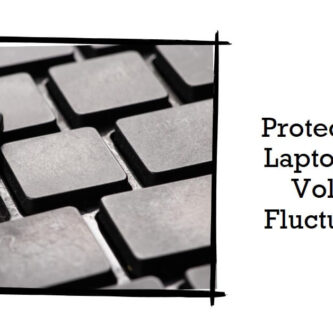Electricians work in a variety of conditions, and rain is one of them. When it rains, there are potential risks that electricians need to be aware of to protect themselves and their clients. This article will explore the safety concerns of working under the rain as an electrician.
The safety concerns of working under the rain as an electrician are crucial. The safety of the electrician and their clients should always be a top priority.
Electricians need to understand the risks associated with working under the rain and take the necessary precautions to prevent accidents.
Hazards and precautions table
Here is a table summarizing the hazards and precautions for electricians working under the rain, then I will break it down:
| Hazard | Precaution |
|---|---|
| Electrical Shock | Use insulated tools, wear protective clothing, avoid working in standing water, check weather conditions |
| Slip and Fall Accidents | Wear appropriate footwear, use ladders or elevated areas with caution, check the stability of the work area |
| Reduced Visibility | Use proper lighting, use caution when moving around, ensure equipment is clearly visible |
| Equipment Damage | Keep equipment dry, use protective covers or tarps |
| Weather-Related Hazards | Check weather conditions, avoid working during severe weather, seek shelter if necessary |
It’s important for electricians to be aware of these hazards and take the necessary precautions to prevent accidents and protect themselves and their clients.
Let’s break down the hazards and precautions for electricians working under the rain to better understand how to stay safe in this potentially dangerous situation.
Potential Risks of Working under the Rain
- Electrical Shock Rainwater can cause electrical equipment to become dangerous, increasing the risk of electrical shock. When water comes into contact with live electrical equipment, it creates an electrical pathway that can lead to a shock. Electricians can suffer from electrical shocks that can cause severe injury or death.
- Slip and Fall Accidents Working under the rain increases the likelihood of slip and fall accidents. Wet surfaces are more slippery, making it difficult to maintain proper footing. This increases the risk of falling from ladders or elevated areas, which can cause serious injury. Read my in-depth article slip, trips and fall hazard.
- Reduced Visibility Working under the rain can also reduce visibility, making it harder to see hazards and equipment. This can lead to mistakes and accidents that could have been prevented with better visibility.
- Equipment Damage Working under the rain can damage electrical equipment, leading to malfunctions or failure. Moisture can cause short circuits, which can damage or destroy equipment. Read my article damage electrical appliances hazard.
- Weather-Related Hazards In addition to the risks listed above, working under the rain can expose electricians to other weather-related hazards. These can include lightning strikes, high winds, and falling debris.
Precautions for Electricians Working under the Rain
To prevent accidents and injuries, electricians should take the following precautions when working under the rain:
- Wear Protective Clothing Electricians should wear protective clothing that is water-resistant or waterproof. This includes raincoats, rubber boots, and gloves. Protective clothing can prevent electrical shock and keep the electrician dry, reducing the risk of slip and fall accidents.
- Isolating power is a crucial precaution that electricians should take when working under the rain. If possible, the electrician should turn off the power to the equipment they are working on and isolate it to prevent accidental contact with live electrical parts. This can help reduce the risk of electrical shock and protect the electrician from harm. Isolating power should always be done in accordance with the proper safety procedures and guidelines.
- Use Insulated Tools Electricians should use insulated tools that are designed to protect against electrical shock. Insulated tools prevent the flow of electrical current and can protect the electrician from accidental contact with live equipment.
- Keep Equipment Dry Electricians should take steps to keep their equipment dry, such as covering it with a tarp or working under an umbrella. This can prevent moisture from getting into electrical equipment and causing damage or short circuits.
- Avoid Working in Standing Water Electricians should avoid working in standing water, as it can increase the risk of electrical shock. If it is necessary to work in standing water, electricians should use rubber boots and insulated tools to protect themselves.
- Check Weather Conditions Electricians should always check weather conditions before starting work. If the weather is too severe, it may be necessary to postpone the work until conditions improve.
Conclusion
Working under the rain as an electrician can be dangerous. The potential risks of electrical shock, slip and fall accidents, reduced visibility, equipment damage, and weather-related hazards make it important for electricians to take precautions to protect themselves and their clients.
By following the precautions listed above, electricians can minimize the risks associated with working under the rain.
you work With Electricity! Don’t leave empty-handed!
Looking to stay ahead of the game in the world of electrical engineering? Subscribe to my YouTube channel and gain access to exclusive content you won’t find anywhere else!
The staff I recommend (Amazon Affiliate Links to products I believe are high quality):
- Economy 120 Volt/60Hz AC Power Source – Step-Down Voltage & Frequency Converters 1800W
- UNI-T Digital Multimeter Tester UT139C
- 50-Amp Extension Cord for RV “100ft”
- Voltage Stabilizer 110/220v
- Hair Dryer “best selling“
- TOSHIBA EM131A5C-BS Countertop Microwave Ovens
Disclaimer: This contains affiliate links to Amazon products. I may earn a commission for purchases made through these links.




